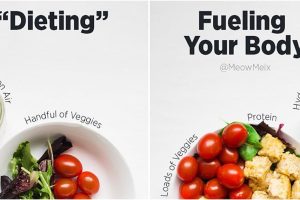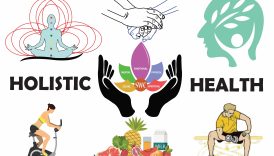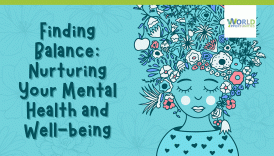Fueling Your Body with the Right Vitamins for Optimal Health

Setting the Stage for Vital Nutrition
Vitamins play a crucial role in maintaining optimal health, yet many individuals often overlook their significance in daily nutrition. Imagine waking up feeling sluggish, despite having a full night’s sleep. This could be attributed to a lack of essential vitamins in your diet. Vitamins are not just superheroes for wellness; they are the essential building blocks that support various bodily functions. To understand their importance, consider the different ways vitamins can impact your health:
- Fueling Your Body with the Right Vitamins for Optimal Health
- Setting the Stage for Vital Nutrition
- Importance of Vitamins for Optimal Health
- Overview of Essential Vitamins
- How Vitamins Support Overall Well-being
- Vitamin A: The Vision Vitamin
- Sources of Vitamin A
- Health Benefits of Vitamin A
- Vitamin C: The Immunity Booster
- Foods Rich in Vitamin C
- Benefits of Vitamin C for the Body
- Vitamin D: The Sunshine Vitamin
- Sunlight Exposure and Vitamin D Synthesis
- Health Impacts of Vitamin D Deficiency
- Vitamin E: The Antioxidant Powerhouse
- Role of Vitamin E in Fighting Free Radicals
- Sources of Vitamin E in the Diet
- B Vitamins: The Energy Supporters
- Different Types of B Vitamins and Their Functions
- Foods High in B Vitamins
- Vitamin K: The Blood Clotter
- Importance of Vitamin K for Blood Health
- Sources and Benefits of Vitamin K
- Minerals That Work Hand in Hand with Vitamins
- Zinc, Iron, and Calcium for Optimal Health
- How Minerals Enhance Vitamin Absorption
- Choosing Quality Supplements for Vitamin Support
- Understanding What to Look For
- My Supplement Journey
- Boosting Immunity: Certain vitamins are known to enhance the body’s defense mechanisms, helping it to fend off illness.
- Promoting Healthy Vision: Some vitamins, like Vitamin A, are pivotal for maintaining good eyesight and preventing night blindness.
- Enhancing Energy Levels: B vitamins are often referred to as energy supporters, as they assist the body in converting food into energy.
In this blog, we’ll explore the myriad benefits of essential vitamins and how they contribute to overall well-being.
Importance of Vitamins for Optimal Health
Overview of Essential Vitamins
Vitamins are organic compounds that our bodies require in small amounts to function effectively. They can be categorized into two main groups: water-soluble and fat-soluble vitamins. Water-soluble vitamins, such as Vitamin C and the B-complex vitamins, are not stored in the body and need to be replenished through diet. In contrast, fat-soluble vitamins like A, D, E, and K can be stored in fatty tissues. Here’s a quick breakdown of essential vitamins you should consider:
- Vitamin A: Supports eye health and immune function.
- Vitamin C: Promotes healing and protects against oxidative stress.
- Vitamin D: Helps with calcium absorption and bone health.
- Vitamin E: Functions as a powerful antioxidant.
How Vitamins Support Overall Well-being
Incorporating essential vitamins into your daily routine can lead to noticeable improvements in your overall health. For instance, a balanced intake of these vitamins can:
- Enhance Mood: B vitamins play a role in brain health, potentially reducing anxiety and depression symptoms.
- Strengthen Bones: Vitamin D is critical for calcium absorption, enhancing bone density and reducing the risk of fractures.
Personal experience shows that individuals who prioritize vitamins through a balanced diet or supplements often report feeling more energetic and focused. Taking simple steps like adding a diverse range of fruits and vegetables to meals can significantly boost vitamin intake and improve well-being.
Vitamin A: The Vision Vitamin
Sources of Vitamin A
Vitamin A is often referred to as the “vision vitamin” due to its critical role in maintaining healthy eyesight. It’s fascinating how a simple dietary choice can profoundly impact one’s vision and overall health. This essential vitamin can be found in two primary forms: preformed Vitamin A (retinol) and provitamin A (beta-carotene).
- Retinol Sources(animal-derived):
- Liver
- Fish oils
- Dairy products (milk and cheese)
- Beta-Carotene Sources(plant-derived):
- Carrots
- Sweet potatoes
- Spinach
- Kale
- Mangoes
Including a mix of these foods in your diet can help ensure that you’re getting enough Vitamin A to support your health.
Health Benefits of Vitamin A
In addition to supporting vision, Vitamin A has several key health benefits, such as:
- Boosting Immunity: It helps strengthen the immune system, making the body better equipped to fight infections.
- Skin Health: Vitamin A is essential for maintaining healthy skin and may aid in the healing of wounds.
Personally, after increasing my intake of foods rich in Vitamin A, I noticed an improvement in my skin clarity and overall vitality. It’s remarkable how something as simple as what we eat can lead to such positive outcomes!
Vitamin C: The Immunity Booster
Foods Rich in Vitamin C
After discussing the benefits of Vitamin A, let’s shift our focus to another vital nutrient—Vitamin C, famously known as the “immunity booster.” As the cold season approaches, incorporating Vitamin C-rich foods into your diet can be a game-changer. Here are some excellent sources of Vitamin C:
- Citrus Fruits: Oranges, grapefruits, and lemons are staples.
- Berries: Strawberries and blueberries pack a powerful punch.
- Vegetables: Bell peppers, broccoli, and Brussels sprouts are fantastic options.
- Tropical Fruits: Pineapples and kiwis provide a sweet boost.
Incorporating these foods can not only enhance your meals but can also safeguard your health.
Benefits of Vitamin C for the Body
Vitamin C offers a plethora of benefits that extend beyond just immune support:
- Antioxidant Properties: It helps neutralize free radicals, protecting cells from damage.
- Collagen Production: Vitamin C is essential for the synthesis of collagen, promoting healthy skin and connective tissues.
From personal experience, I’ve noticed that when I increase my Vitamin C intake, I feel more resilient during flu season. Regularly enjoying a glass of orange juice or a fruit salad not only satisfies my taste buds but also fortifies my health!
Vitamin D: The Sunshine Vitamin
Sunlight Exposure and Vitamin D Synthesis
Having learned about the power of Vitamin C, it’s time to bask in the glow of Vitamin D, popularly known as the “sunshine vitamin.” One of the remarkable features of Vitamin D is its unique ability to be synthesized in the body through sunlight exposure. When your skin is exposed to ultraviolet (UV) rays, it converts cholesterol into Vitamin D. To ensure you’re getting enough Vitamin D:
- Aim for about 10-30 minutes of sunlight exposure several times a week, depending on your skin type, location, and the season.
- Remember to enjoy sunshine responsibly to avoid sunburn!
However, during winter months or in areas with limited sun, dietary sources become crucial.
Health Impacts of Vitamin D Deficiency
Vitamin D plays a pivotal role in health, and its deficiency can lead to serious consequences, including:
- Weak Bones: Low levels can lead to osteomalacia in adults and rickets in children.
- Increased Risk of Illness: Insufficient Vitamin D can compromise the immune system.
From my own experience, I found that regular sun exposure, coupled with foods like salmon and fortified dairy, made a significant difference in my energy levels and overall well-being. This “sunshine vitamin” truly lives up to its name!
Vitamin E: The Antioxidant Powerhouse
Role of Vitamin E in Fighting Free Radicals
Now that we’ve illuminated the benefits of Vitamin D, let’s dive into the incredible world of Vitamin E, the antioxidant powerhouse. Vitamin E is renowned for its ability to neutralize free radicals—unstable molecules that can cause oxidative stress and damage cells. This protective function is vital in preventing chronic diseases and supporting overall health. Think of Vitamin E as a bodyguard for your cells! Here’s how it works:
- It helps protect against heart disease by preventing the oxidation of LDL cholesterol.
- It supports healthy skin, possibly reducing the appearance of scars and wrinkles.
Personally, I’ve added Vitamin E-rich foods to my routine and noticed how my skin feels more resilient and youthful.
Sources of Vitamin E in the Diet
Incorporating sources of Vitamin E into your diet is easier than you might think. Here are some delicious options:
- Nuts and Seeds: Almonds and sunflower seeds are packed with Vitamin E.
- Vegetable Oils: Wheat germ oil and sunflower oil are excellent sources.
- Green Leafy Vegetables: Spinach and broccoli not only add color to your plate but also boost your Vitamin E intake.
Including these foods can enhance your diet and provide your body with the necessary antioxidants it craves. Embrace the power of Vitamin E and notice how it transforms your health!
B Vitamins: The Energy Supporters
Different Types of B Vitamins and Their Functions
As we continue our journey through essential vitamins, let’s shine a spotlight on the B vitamins, often hailed as the energy supporters of the vitamin family. These water-soluble vitamins play a crucial role in converting food into energy, making them indispensable for maintaining stamina and vitality. Here’s a brief overview of the key B vitamins:
- Vitamin B1 (Thiamine): Supports metabolism and nerve function.
- Vitamin B2 (Riboflavin): Essential for energy production and cellular function.
- Vitamin B3 (Niacin): Supports digestive health and skin, along with energy metabolism.
- Vitamin B5 (Pantothenic Acid): Important for hormone production and fat metabolism.
- Vitamin B6 (Pyridoxine): Involved in brain health and the production of neurotransmitters.
- Vitamin B7 (Biotin): Aids in the metabolism of fats and carbohydrates.
- Vitamin B9 (Folate): Critical for DNA synthesis, especially during pregnancy.
- Vitamin B12 (Cobalamin): Vital for nerve function and red blood cell production.
Foods High in B Vitamins
Incorporating a variety of foods high in B vitamins can provide significant energy boosts. Here are some excellent sources:
- Whole Grains: Brown rice and oats are fantastic for delivering B vitamins and energy.
- Meats: Chicken, turkey, and liver are packed with several B vitamins.
- Legumes: Beans and lentils are not only nutritious but also great sources of B vitamins.
- Leafy Greens: Spinach and kale support overall health while providing essential nutrients.
From my personal experience, when I consciously included more whole grains and pulses in my meals, I found myself more energetic throughout the day. These “energy supporters” help to keep the body vibrant and full of life!
Vitamin K: The Blood Clotter
Importance of Vitamin K for Blood Health
Having explored the energy-supporting B vitamins, it’s time to delve into another vital nutrient: Vitamin K, often hailed as the “blood clotter.” This essential vitamin plays a critical role in the body, primarily by facilitating the process of blood clotting, which is vital for wound healing. Without sufficient Vitamin K, our bodies would struggle to stop bleeding, making it indispensable for overall health. Vitamin K also contributes to bone health, working alongside Vitamin D to ensure proper calcium metabolism. This dual function highlights its importance not only in maintaining a solid structure but also in preventing excess bleeding.
Sources and Benefits of Vitamin K
To ensure adequate intake of Vitamin K, consider adding these foods to your diet:
- Leafy Greens: Kale and spinach are powerhouse sources.
- Cruciferous Vegetables: Broccoli and Brussels sprouts are great choices.
- Fermented Foods: Sauerkraut and natto contain Vitamin K2, which is beneficial for bone health.
Personally, I’ve made it a habit to include a side salad with dark leafy greens in most of my meals. Not only does it help maintain my blood health, but it also boosts my overall nutrient intake. Embracing Vitamin K in your diet is an easy way to support both blood and bone health!
Minerals That Work Hand in Hand with Vitamins
Zinc, Iron, and Calcium for Optimal Health
As we wrap up our journey through the essential vitamins, it’s vital to recognize that vitamins don’t work alone; they often team up with minerals for optimal health. Three key minerals that play crucial roles are Zinc, Iron, and Calcium.
- Zinc: Essential for immune function, wound healing, and DNA synthesis. Foods like oysters, beans, and nuts are rich sources.
- Iron: Critical for hemoglobin production and oxygen transport in the body. Incorporating lentils, spinach, and red meat can help meet your iron needs.
- Calcium: Vital for bone health and muscle function, it can be found in dairy products, leafy greens, and fortified foods.
Each of these minerals complements vitamin functions, ensuring your body operates smoothly.
How Minerals Enhance Vitamin Absorption
Understanding how minerals improve vitamin absorption sheds light on their essential roles. For instance, Vitamin C enhances the absorption of Iron from plant sources, making it more bioavailable. Calcium, on the other hand, works best when combined with Vitamin D to optimize bone health. From my personal experience, recognizing these interactions changed how I approach meals. Pairing spinach (rich in Iron and Calcium) with citrus fruits (high in Vitamin C) has not only enhanced my nutrient intake but also made my meals more flavorful and satisfying. By choosing a diet rich in both vitamins and minerals, you’ll support your body’s functions more effectively!
Choosing Quality Supplements for Vitamin Support
As we consider the essential vitamins and minerals vital for our health, many find themselves wondering about supplements. While getting nutrients from whole foods is the ideal approach, quality supplements can serve as valuable support, especially when dietary restrictions or busy lifestyles come into play.
Understanding What to Look For
When choosing a vitamin supplement, keep the following tips in mind:
- Quality over Quantity: Look for brands that have third-party testing or certifications, ensuring their products meet high standards.
- Form Matters: Some vitamins are more easily absorbed in certain forms. For example, methylcobalamin is often preferred over cyanocobalamin for Vitamin B12.
- Dosage: Ensure that the dosage aligns with recommended daily values—especially for fat-soluble vitamins like A, D, E, and K, which can be toxic in excess.
My Supplement Journey
Personal experiences can guide our choices. I began using a multi-vitamin after noticing fatigue despite a balanced diet. By opting for a reputable brand and monitoring my energy levels, I found a supplement that fit my lifestyle, providing an extra health boost. As you explore vitamin supplements, remember to consult with a healthcare professional, especially if you have specific health concerns or conditions. With thoughtful selections, you can enhance your nutrient intake and support overall wellness!





